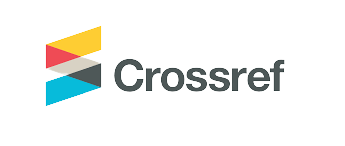Innovation of Story-Based Moral Learning Modules in Strengthening Student Character
Keywords:
Character Education Story Module Moral Values Narrative Approach Learning DevelopmentAbstract
This study aims to develop and test the effectiveness of a story-based moral learning module as an innovation in strengthening students' character. The background of this study is based on the weak implementation of character education which tends to be normative and non-contextual. The story-based module is designed to touch the cognitive, affective, and psychomotor aspects of students through narratives that are relevant to their lives. The research method used is the Research and Development (R&D) model of Borg & Gall, with stages of needs analysis, planning, development, expert validation, revision, limited trials, and evaluation of effectiveness through a quasi-experimental approach. The results of the study showed that the use of story-based modules significantly improved students' understanding and internalization of moral values, such as honesty, responsibility, and empathy. This module is also able to build students' emotional involvement and create a fun and meaningful learning atmosphere. These findings strengthen the theory that the narrative approach can be an effective strategy in character learning. Thus, this module has great potential to be widely replicated in the context of character education at various school levels.
References
Agustina, L., Ryadhush Shalihin, R., Kunci, K., Islam, P., Multidisipliner, P., Interdisipliner, P., & Transdisipliner, P. (2022). Theoretical Framework Pendidikan Islam Berbasis Pendekatan Multi-Inter Transdisipliner. JSG: Jurnal Sang Guru, 1(April), 35–43. Retrieved from https://ejournal.uinib.ac.id/jurnal/index.php/jsg/index
Barida, M., & Prasetiawan, H. (2018). Urgensi Pengembangan Model Konseling Kelompok Teknik Self Management Untuk Meningkatkan Kecerdasan Moral Siswa SMP. 4(1), 27–36. https://doi.org/https://doi.org/10.52657/jfk.v4i1.439
Borg, W., & Gall, M. D. (1983). Educational Research (Fourth Edi). New York: Longman Inc.
Cindy, M., & Fariyatul, E. (2019). Penguatan Pendidikan Karakter melalui Kurikulum Muatan Lokal di SMP Muhammadiyah 2 Taman. Palapa, 7(2), 267–285. https://doi.org/10.36088/palapa.v7i2.358
Firoza, R. N. W., Barlinty, S. A., & Mokhamad, K. Y. (2025). The Implementation of Akhlaq-Based Curriculum in Islamic Schools. JISEI: Journal of Islamic Studies and Educational Innovation, 01(01).
Helandri, J., & Supriadi, S. (2024). Implementasi Nilai-Nilai Pendidikan Islam Dalam Konteks Modern: Tinjauan Terhadap Praktik Dan Tantangan. TA’LIM: Jurnal Studi Pendidikan Islam, 7(1), 93–116.
Herdiyanti, Y., Janah, M., & Susanto, R. (2025). Building a Golden Generation : Synergy of Education , Technology , and Qur ’ anic Values. JISEI: Journal of Islamic Studies and Educational Innovation, 01(01), 36–48.
Kartiwan, C. W., Alkarimah, F., & Ulfah. (2023). Peran Guru Pendidikan Agama Islam dalam Mewujudkan Profil Pelajar Pancasila. Jurnal Imiah Pendidikan Dan Pembelajaran, 7(2), 239–246. https://doi.org/10.23887/jipp.v7i2.59576
Kosasih. (2013). Nilai-nilai Moral dalam Karya Sastra Melayu Klasik. SUSURGALUR: Jurnal Kajian Sejarah & Pendidikan Sejarah, 1(1), 11–26.
Mujahid, I. (2021). Islamic orthodoxy-based character education: creating moderate Muslim in a modern pesantren in Indonesia. Indonesian Journal of Islam and Muslim Societies, 11(2), 185–212. https://doi.org/10.18326/ijims.v11i2.185-212
Mulyadi, M. (2011). Penelitian Kuantitatif Dan Kualitatif Serta Pemikiran Dasar Menggabungkanya. Universitas Padjadjaran, Jurnal Studi Komunikasi Dan Media, 15 No. 1, 132.
Puji, F. D. A., Hani, N. U., & Kumalasari, E. (2025). Exploring Knowledge from the Qur ’ an : The Concept of Multidisciplinary Education in Islamic Culture. JISEI: Journal of Islamic Studies and Educational Innovation, 01(01), 22–35.
Siswanto, E., & Soeharno, A. (2024). Recent Learning Innovations: Increasing The Use Of Blogs As Learning Media For Educators. Journal Of Humanities Community Empowerment, 2(1), 30–36.
Sugiyono. (2016). Metode Penelitian : Kuantitatif, Kualitatif, dan R&D. Bandung: CV Alfabeta.
Susanto, R. (2024). Konsep Pendidikan Karakter dalam Islam. In Pendidikan Karakter Berbasis Islam (pp. 20–32). U ME Publishing.
Susanto, R., Ali, M. M., & Hidayat, M. D. (2024). Islamic Religious Education in the Independent Learning Curriculum. IKTIFAK : Journal of Child and Gender Studies, 02(02), 63–72. https://doi.org/https://doi.org/10.55380/iktifak.v2i2.962
Susanto, R., Rohmah, W., Hidayanti, S. N., & Sugiyar, S. (2023). Interreligious Harmonization (Analytic Study of Kalicinta Village, Kotabumi, Lampung). Jurnal Kodifikasia: Jurnal Penelitian Keagamaan San Sosial-Budaya, 17(1). https://doi.org/http://dx.doi.org/10.21154/kodifikasia.v17i1.5729
Syafi’i, A., Marfiyanto, T., & Rodiyah, S. K. (2018). Studi Tentang Prestasi Belajar Siswa Dalam Berbagai Aspek Dan Faktor Yang Mempengaruhi. Jurnal Komunikasi Pendidikan, 2(2), 115. https://doi.org/10.32585/jkp.v2i2.114
Wahyudi, A., Nuriana, A. Q., & Irfan, M. (2025). Cultural Adaptation in Islamic Education : Navigating Between Tradition and Modernity. JISEI: Journal of Islamic Studies and Educational Innovation, 01(01), 101–114.
Wening, S. (2012). Pembentukan Karakter Bangsa Melalui Pendidikan Nilai. Jurnal Pendidikan Karakter, 3(1), 55–66. https://doi.org/https://doi.org/10.21831/jpk.v0i1.1452
Widodo, W., Susanto, R., & Deden, H. (2023). The Meaning of Trust in Surat Al-Ahzab Verse 72 the Perspective of Sheikh Ustman al-Khubawi. Proceeding of Conference on Strengthening Islamic Studies in The Digital Era, 3(1).
Yahuda, R. D., & Susanto, R. (2022). Implementation of holistic islamic education purposes based “totally moslem truly intelectual” in iain ponorogo postgraduate program 2022.
Downloads
Published
How to Cite
Issue
Section
License
Copyright (c) 2025 Journal of Islamic Studies and Educational Innovation

This work is licensed under a Creative Commons Attribution-ShareAlike 4.0 International License.







